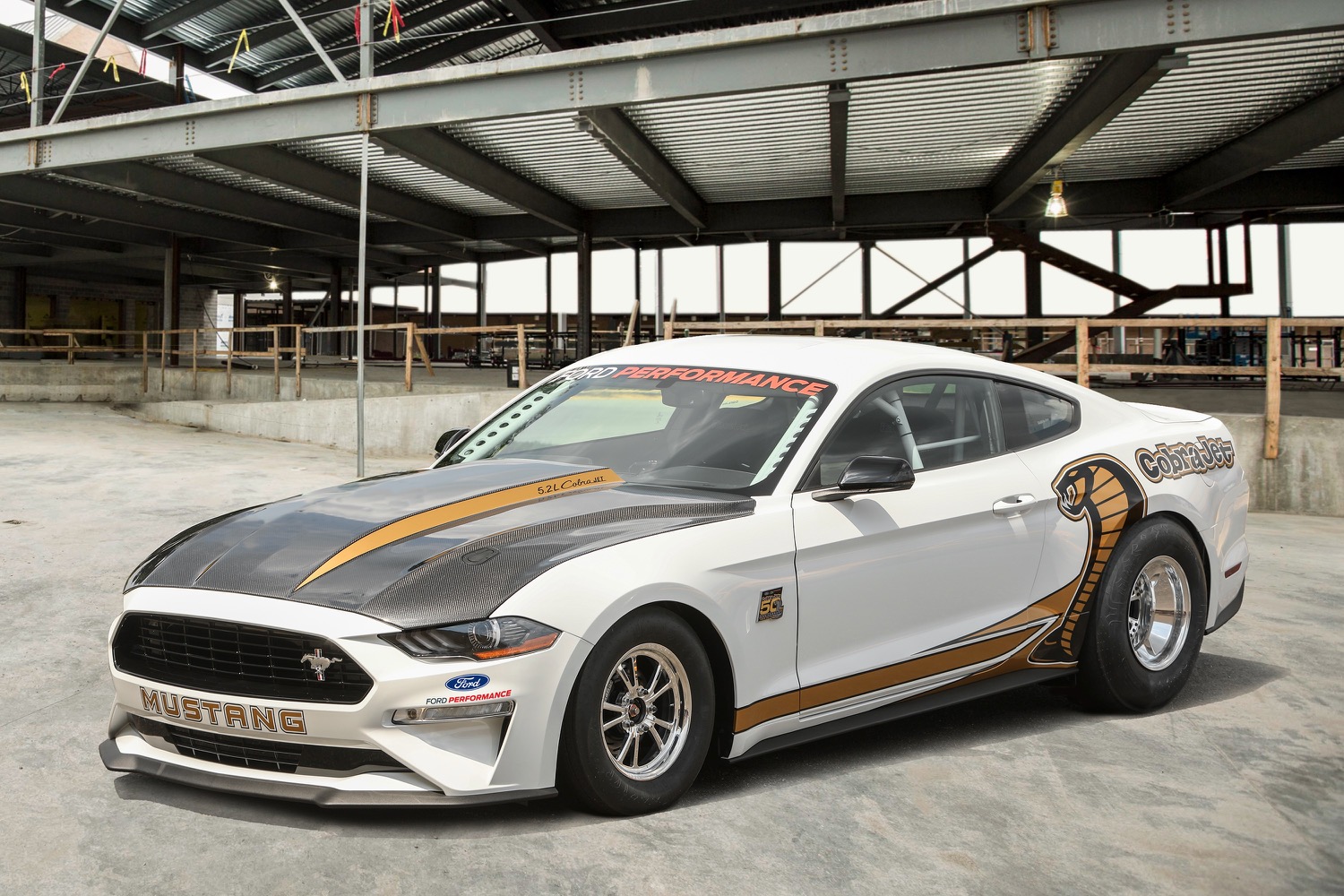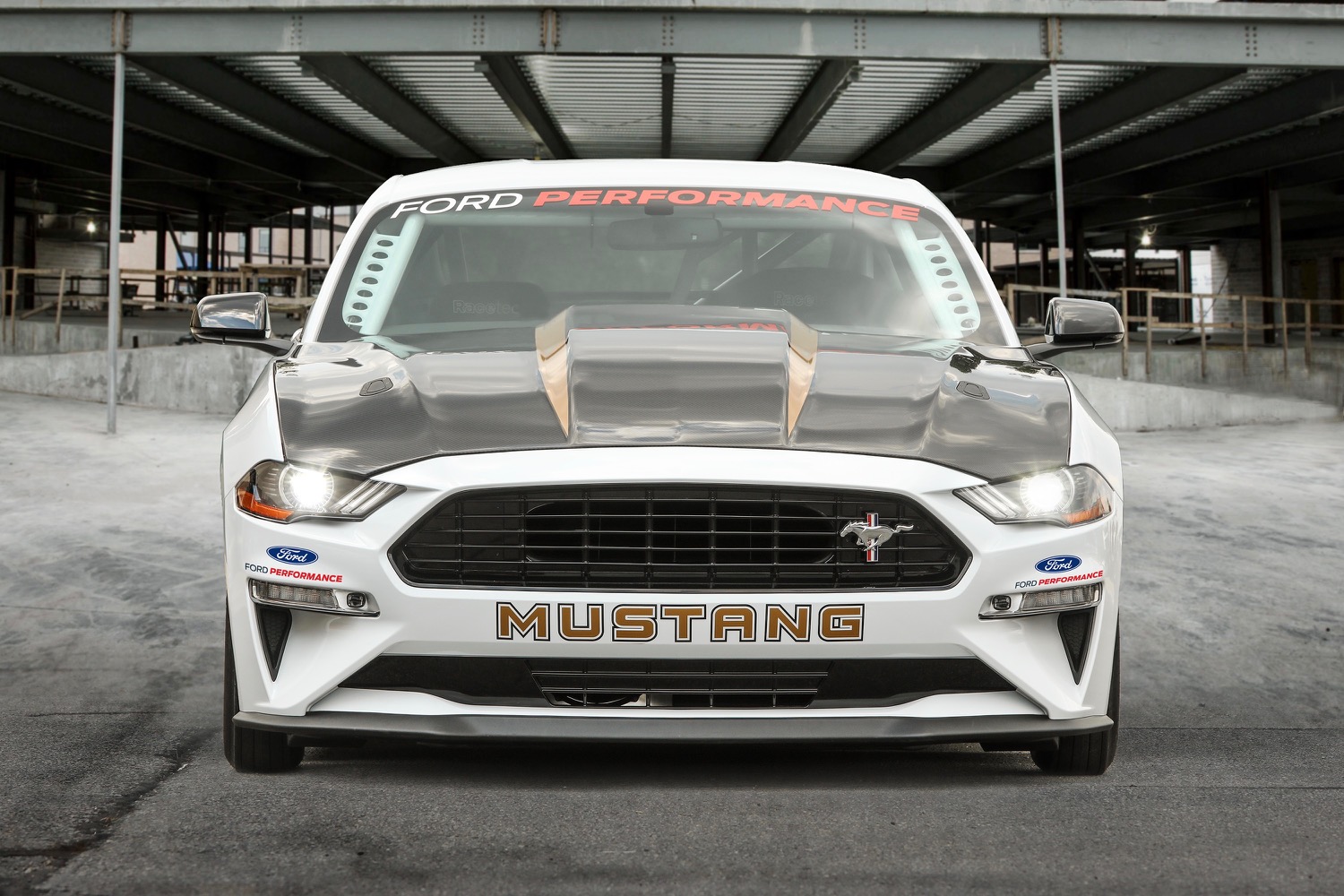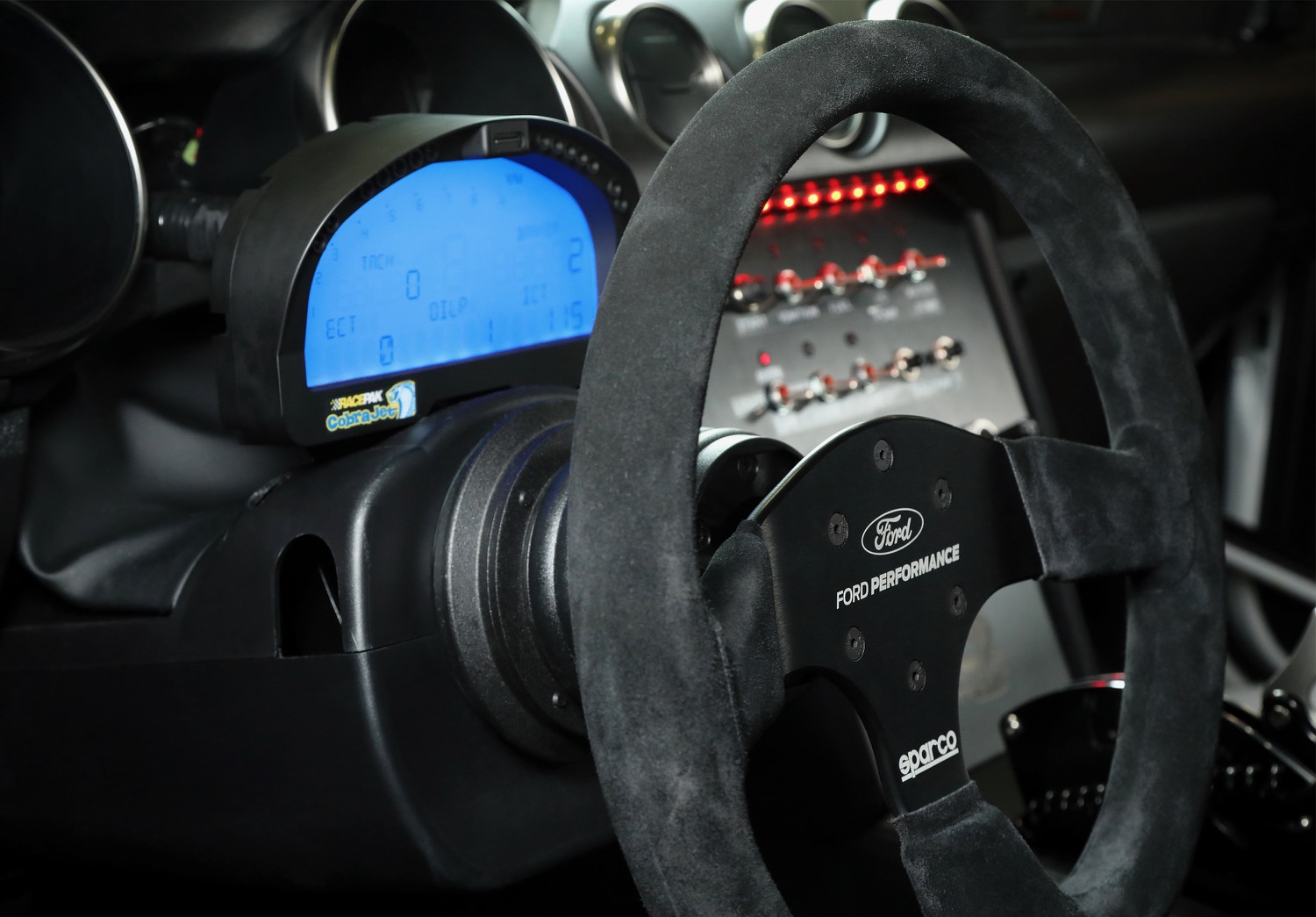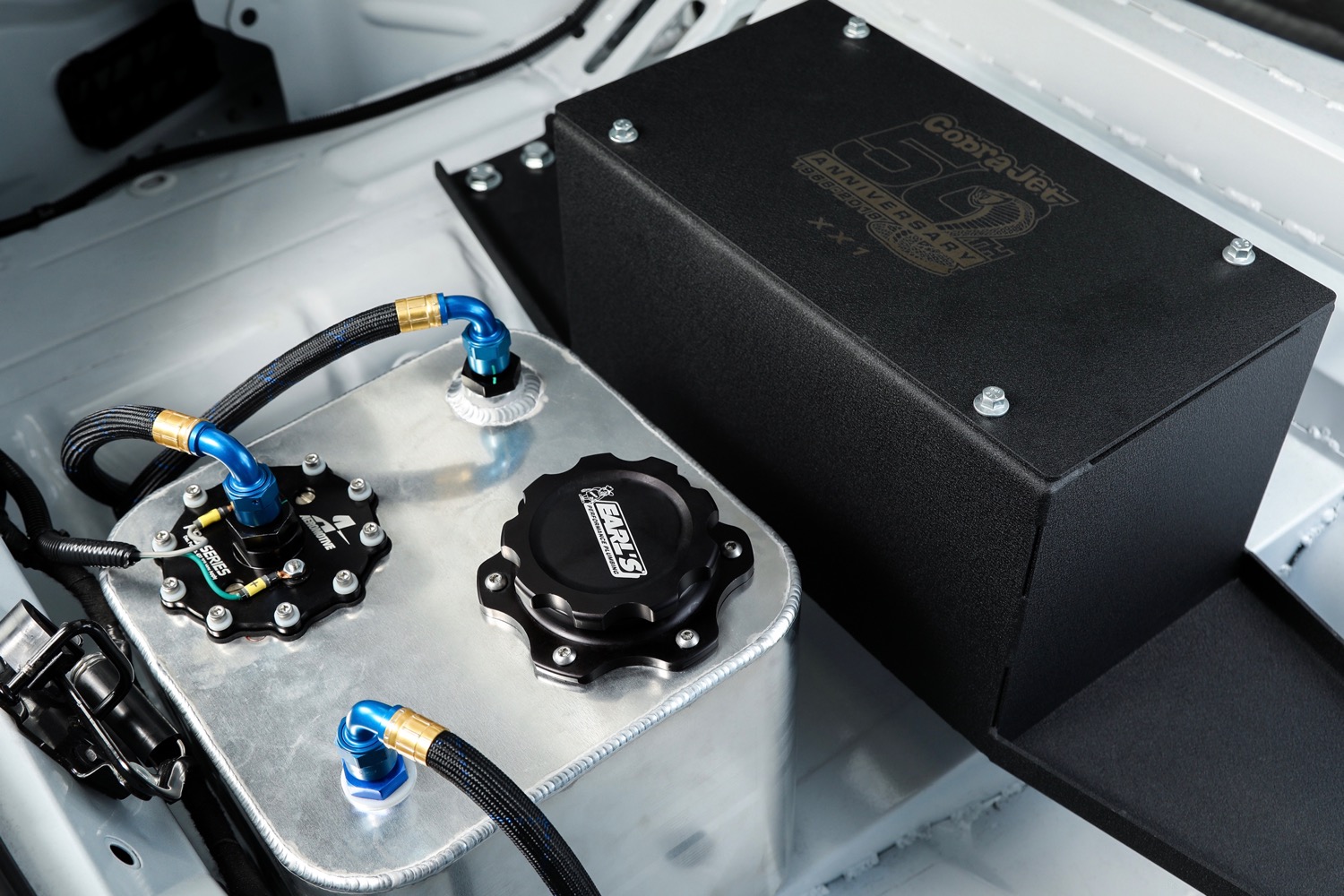If all you care about is going fast in a straight line, Ford has the car for you. The 2018 Ford Mustang Cobra Jet was built specifically for drag racing. In fact, it’s the quickest drag-racing Mustang ever, according to Ford. Like most things Mustang, the Cobra Jet is also a reference to the car’s past glory.
The first Mustang Cobra Jet was launched 50 years ago, in 1968. That was the height of the American muscle car craze, when winning at the drag strip had a significant impact on sales. So Ford built 50 lightweight Mustangs with 335 horsepower and 428-cubic-inch V8 engines, and made sure they found their way into the hands of drag racers. Ford brought back the Cobra Jet in 2008, and continued building small batches of the cars through 2016.
Like its predecessors, the 2018 Cobra Jet is a turnkey race car that people can buy and send directly to the drag strip. It features a 5.2-liter V8, which is the same configuration that will be used in the upcoming Shelby GT500 road car (Ford did not confirm that both cars will use the same engine, however). Ford wouldn’t discuss power output, but said the Cobra Jet will run the quarter mile in the 8-second-plus range at speeds up to 150 mph.
To fortify the Mustang for drag racing, Ford added a roll cage, racing seats, two-way coil-over shock absorbers with adjustable ride height, 9-inch solid rear axle, and a “low-drag” braking system. Buyers can choose between Race Red and Oxford White.
Ford will build just 68 2018 Cobra Jets, in honor of the original Cobra Jet’s 1968 debut. Pricing starts at $130,000, which is a lot money for a Mustang, but not bad for a complete race car that may also become a collector’s item in the future. Note that Chevrolet and Dodge have offered their own turnkey drag racers in the form of the COPO Camaro and Challenger Drag Pak, respectively. We wouldn’t be surprised to see updated versions of those cars arrive soon to challenge Ford.
The Cobra Jet isn’t the only new special-edition Mustang celebrating the 1960s. Ford recently launched a new Mustang Bullitt to mark the 50th anniversary of the iconic Steve McQueen film of the same name, and brought back the California Special, which debuted in 1968. But the upcoming GT500 may eclipse them all.
Reviving a nameplate that debuted in 1967 and was last used in 2014, the GT500 will be the most powerful production Mustang ever, with at least 700 hp. Unlike the Cobra Jet, it will also be road legal.










